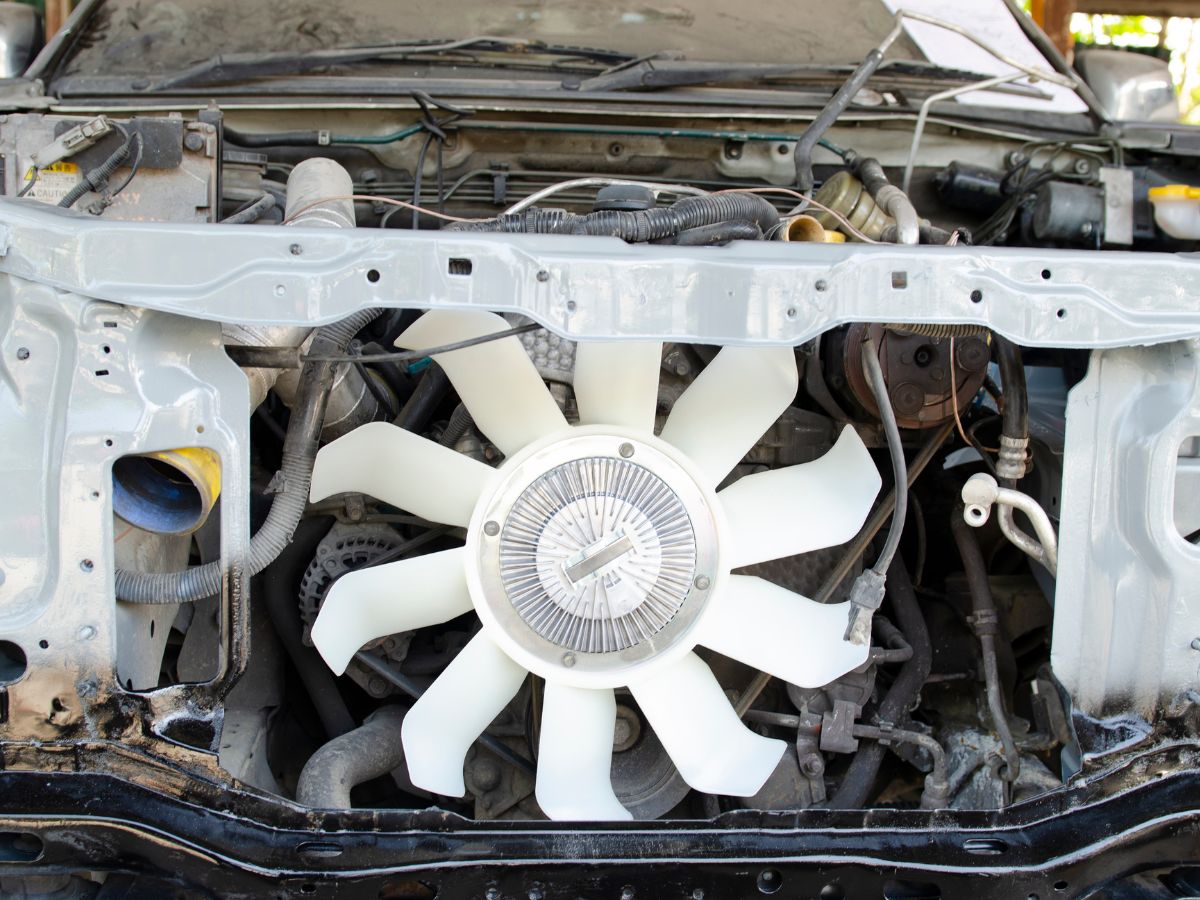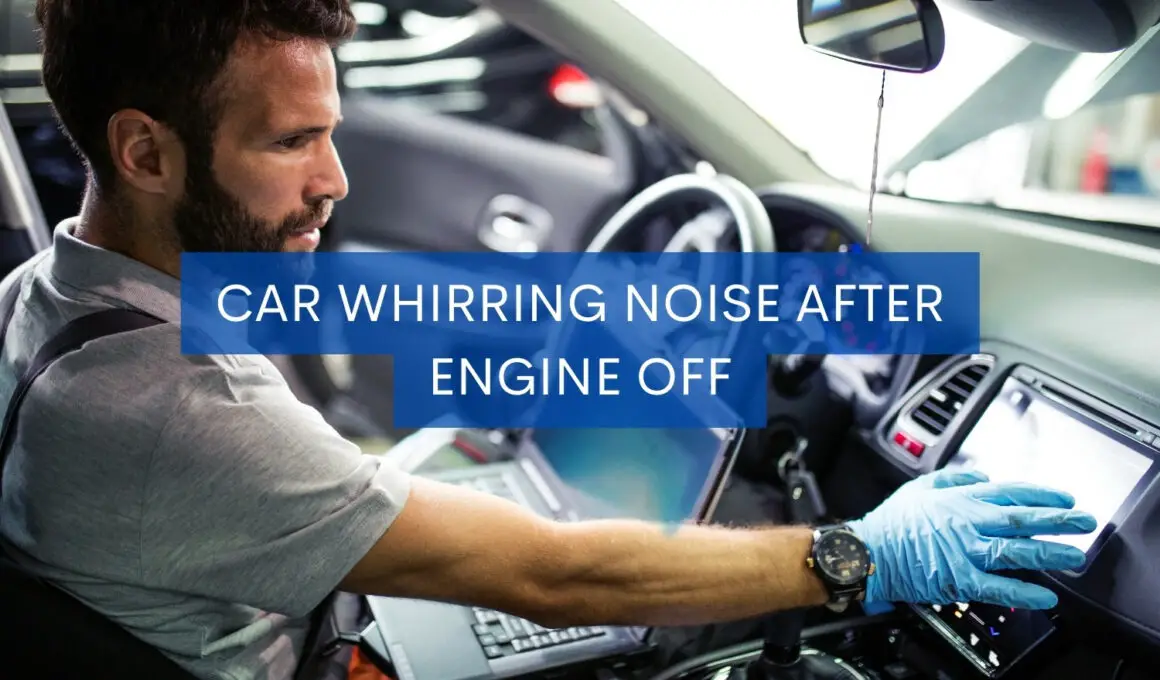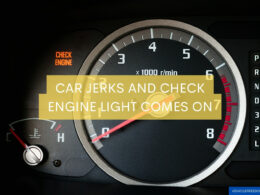In This Article Show
If you’re reading this, you’re likely trying to figure out why your car is making a whirring noise after you’ve turned off the engine. As an experienced mechanic with over 13 years of professional experience, I’ve encountered this issue countless times, and I assure you, you’re not alone.
The sounds your car makes can often clearly indicate its health, much like a heartbeat to a human. Most of the time, your car hums along perfectly, its engine purring and providing that comforting, familiar sound. But occasionally, you might hear something unusual, like a whirring noise after the engine is off. These out-of-the-ordinary sounds warrant attention because they can signal a potential problem.
Early detection of these unusual noises can save time, money, and stress. I believe every car owner should have some basic knowledge of their vehicle’s sounds and how to respond accordingly. With this aim, I share my expertise through these blog posts.
In this article, we’ll explore the common causes of car whirring noises after the engine is turned off, some potential DIY fixes you can do, when to seek professional help, and tips on preventing such noises from occurring.
Recognizing Car Whirring Noises
Regarding vehicles, a wealth of information is often communicated through sound. One of the most common yet misunderstood noises is the whirring sound that sometimes occurs after the engine is turned off.
So, what exactly does a whirring noise sound like? Imagine the low, continuous hum of a ceiling fan or the whirl of a computer fan. It’s not a grinding or a clunking but a consistent, high-pitched hum or buzz. It usually continues for a while after you’ve turned off the engine, which can be disconcerting, especially if it’s a new sound you haven’t noticed before.
Now, it’s important to mention that not all whirring noises indicate a problem. Some cars, especially newer models with advanced systems, can produce this noise in their normal operation. However, if the whirring sound is new or has become noticeably louder or more frequent, it’s a good idea to investigate the cause.
This ability to identify unusual noises in your car is the first step towards successful automotive troubleshooting. It’s not just about being a seasoned mechanic; as a car owner, developing this skill can help you catch minor issues before they become major problems.
So the next time you hear a whirring noise after shutting down your engine, don’t ignore it.

Common Causes of Car Whirring Noise After Engine Off
The whirring noise you hear after turning off your car’s engine can be attributed to several causes. Below are some of the most common culprits:
1. Coolant Fan Running
Many cars are designed so the coolant fan can run a bit after the engine turns off. This helps cool down the engine faster and maintain optimal engine temperature. If the fan bearings are worn out or the fan motor is failing, it can cause a whirring noise.
2. Power Steering Pump Failure
Your car’s power steering pump operates under high pressure and can make a whirring sound if it’s starting to fail. Even though the pump should stop running once the engine is off, a malfunction can cause it to make noise.
3. Alternator Issues
The alternator is crucial to your car’s electrical system. A failing alternator or one with worn-out bearings can make a whirring sound. However, this is less common as the alternator generally stops as soon as the engine is turned off.
4. Faulty Water Pump
The water pump is another component that could cause a whirring sound. It circulates coolant throughout the engine, and when it begins to fail, it may emit a high-pitched, whirring sound.
It’s important to note that these are just potential causes, and the exact issue can vary based on the vehicle’s make, model, and overall condition. The key is to listen carefully to your car and, if possible, try to locate where the sound is coming from.
As we’ll discuss soon, identifying the problem’s source can make determining the cause and the appropriate fix easier.
Potential Impact of Ignoring Whirring Noises
As with any vehicle-related issue, ignoring a persisting whirring noise can lead to several unwanted consequences. Here’s a closer look at why addressing such noises promptly is crucial:
1. Impact on Car’s Performance
Ignoring a whirring noise might lead to the deterioration of the car’s performance over time. When malfunctioning, components like the power steering pump or the water pump can affect the vehicle’s smooth running.
2. Potential Safety Risks
Certain causes of whirring noises, such as a failing power steering pump or a malfunctioning coolant fan, can pose safety risks. For instance, a defective power steering pump can make steering the vehicle more difficult, particularly at lower speeds.
3. Potential Increased Repair Costs Over Time
The longer you ignore the noise, the higher the chances of damaging other related parts of the car, which can lead to more costly repairs. Early intervention can prevent one faulty part from impacting others, keeping repair costs down.
Remember, a car whirring noise might not seem like a big deal, especially if your vehicle seems to be running fine. However, these sounds often indicate underlying issues that can escalate if not promptly addressed.
DIY Fixes for Car Whirring Noise After Engine Off
If you’ve identified that your car is making a whirring noise after the engine is off and you’re comfortable getting your hands a bit dirty, here are some DIY fixes you can try. Ensure you have the right tools and safety equipment before starting.
1. Checking and Replacing the Coolant Fan
- Start by locating the coolant fan in your engine bay.
- Carefully inspect it for any visible damage or wear. If the fan wobbles when touched, this could indicate a worn-out bearing.
- If you suspect the fan is the noise source, consider replacing it.
Remember to disconnect the battery before attempting this fix to avoid any electrical mishaps.

2. Inspecting and Replacing the Power Steering Pump
- Locate the power steering pump. The engine typically drives it via a belt.
- Inspect the pump and the surrounding area for any leaks or damage.
- If the pump is damaged, you may want to consider replacing it.
However, replacing a power steering pump can be complex, so it might be time to seek professional help if you’re uncomfortable doing this.
3. Checking and Replacing the Alternator
- The alternator is typically located near the front of the engine.
- Check the condition of the alternator belt. A worn-out or loose belt can cause a whirring noise.
- If the alternator bearings are the issue, you’ll usually need to replace the entire unit.
This can be a complicated task, so don’t hesitate to seek professional help if needed.
Checking and Replacing a Faulty Water Pump
- The water pump is usually located near the front of the engine block.
- Check for leaks around the water pump. A leaking water pump can cause a whirring noise and may need to be replaced.
Remember, these are general guides and your car’s specifics might vary.
Always refer to your vehicle’s manual for detailed instructions and safety information. If you feel uncertain or uncomfortable performing these tasks at any point, it’s best to consult a professional mechanic. Let’s discuss when to do that next.
When to Seek Professional Help
While it’s rewarding and often cost-effective to solve minor car issues on your own, there are times when the expertise of a professional mechanic is necessary.
Here are some signs that it’s time to seek professional help for a whirring noise after engine off:
1. The Noise Persists
If you’ve tried the DIY fixes, or if the whirring noise continues even after replacing certain components, it’s wise to consult a professional. Persistent noises may indicate a more complex underlying problem.
2. Difficulty in Identifying the Source
If you cannot pinpoint the noise source, a mechanic can use specialized tools and their expertise to identify and solve the problem.
3. Complex Repairs Required
Tasks like replacing the power steering pump, the alternator, or the water pump can be complex and require specific tools and expertise. If you’re not comfortable performing these tasks, it’s best to let a professional handle them.
4. The Car’s Performance is Affected
If you notice that the car’s performance is deteriorating (difficulty steering, overheating, etc.), it’s crucial to seek professional help immediately to avoid further damage or potential safety risks.
When these signs appear, consulting a mechanic can help you catch and address potential issues before they escalate. It’s always better to be safe than sorry when it comes to maintaining your vehicle’s health and safety on the road.
Prevention Tips: How to Avoid Car Whirring Noises
Prevention is always better than cure, especially when it comes to vehicle maintenance. Here are some tips to help avoid encountering a whirring noise after turning your car engine off in the future:
1. Regular Maintenance Checks
Regular service appointments aren’t just about changing the oil. They’re an opportunity for a professional to inspect your car’s essential components and spot potential issues. It’s crucial to adhere to the service schedule recommended in your vehicle’s manual.
2. Prompt Attention to Unusual Noises
As we’ve discussed, unusual noises like a whirring sound can indicate a potential problem early. Addressing these sounds promptly can help prevent more serious issues down the line.
3. Using High-Quality Replacement Parts
If you need to replace a component, ensure you use high-quality parts that meet your vehicle’s specifications. Cheaper, inferior parts might seem like a good deal, but they can lead to problems later on.
4. Regular Inspection of Car Fluids
Regularly checking your car’s fluids, such as coolant and power steering fluid, can help ensure they’re in good condition and at the proper levels. This can help prevent many issues that could lead to whirring noises.
With these preventive measures, you can prolong the health of your vehicle and minimize the chances of encountering whirring noises or other car issues. Remember, being proactive about your vehicle’s maintenance is the key to smooth and safe rides.
Wrapping it up
Deciphering your car’s noises is an integral part of understanding its health.
A whirring noise after the engine is turned off can seem alarming, but it’s often your car’s way of alerting you to a potential issue that needs attention.
While there are DIY fixes you can try, don’t hesitate to seek professional help when needed. By being proactive and attentive to your car’s needs, you can ensure it continues serving you reliably for many miles.










